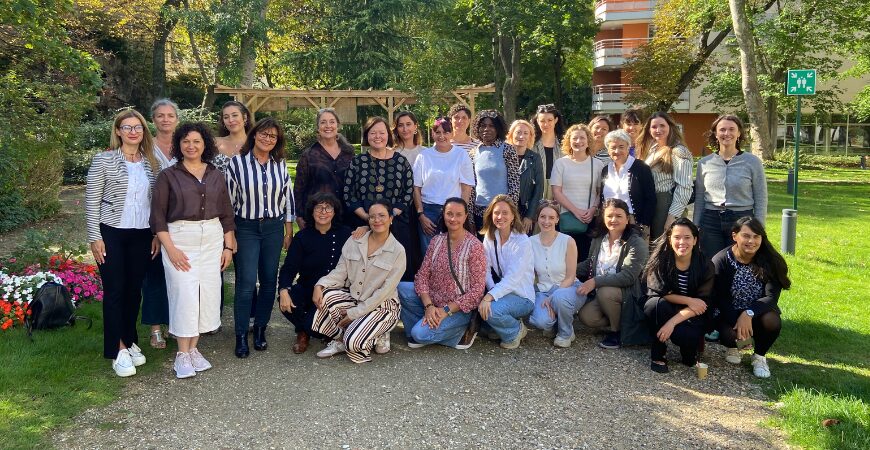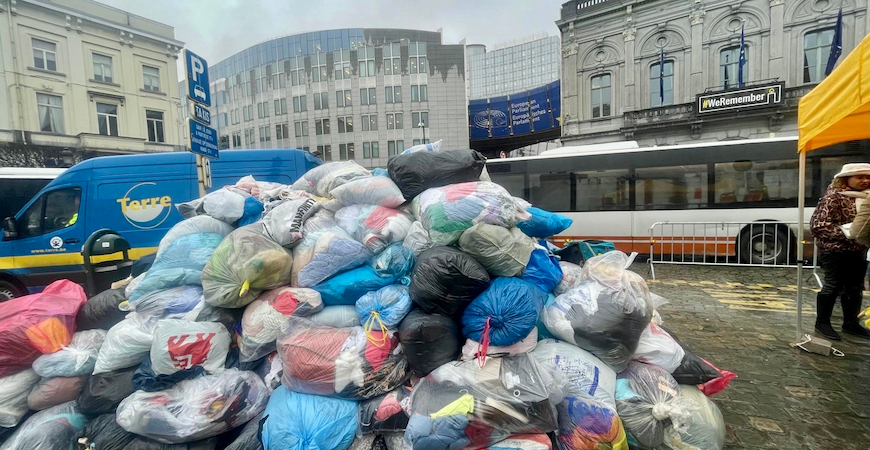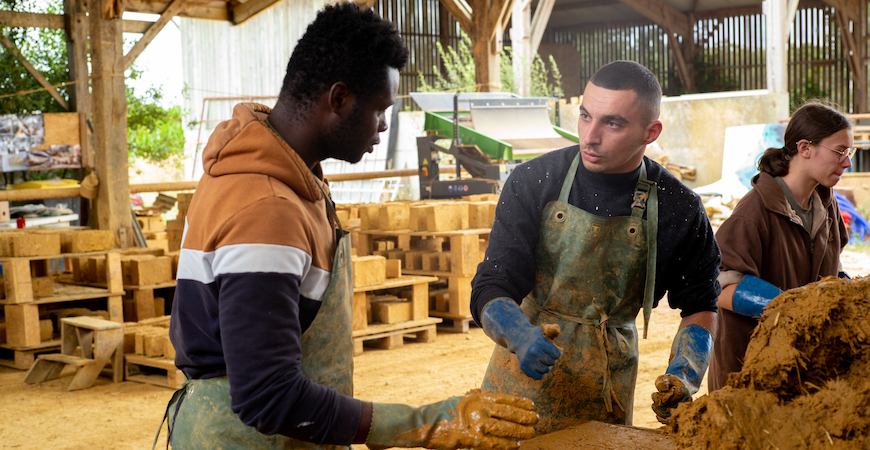Marie Tixier
Female leadership – feedback from the pilot programme
In September 2025, Emmaus Europe launched a brand-new initiative: the first edition of the Women’s Leadership Programme. (more…)

Addressing the second-hand textiles crisis
The second-hand textiles sector in the EU faces mounting challenges. Oversaturation of the market, rising operational costs, and the influx of low-quality fast fashion are threatening social enterprises, environmental sustainability, and inclusive job creation. Without swift intervention, key parts of the textile reuse and recycling ecosystem are at risk of collapse.
RREUSE, alongside its members Emmaüs Europe, Ressources, and TESS GEIE, has co-signed a policy paper urging policymakers to act decisively. Supported by Zero Waste Europe, the paper presents actionable recommendations, including fair Extended Producer Responsibility (EPR) schemes and interim financial measures to sustain the sector until more robust solutions are in place.
This joint effort emphasses the essential role of social enterprises in driving sustainable textile management and calls for policies that prioritise waste prevention and local reuse over incineration.
Read the joint policy paper
© Emmaus Europe
Emmaus Terre, solidarity building and DIY!
With the launch of a brickworks and a building materials recycling centre in Brittany, in the west of France, Emmaus Terre is innovating, while remaining faithful to the Emmaus tradition of welcoming and building! We spoke to Clarisse, the group’s administrative, accounting and community officer, to find out more about it.
How did Emmaus Terre and the idea of focussing on construction come about?
The idea emerged because one of its co-founders, Orane, wanted to create a reception centre supported by local business activity. For the past 10 years, she has been working with migrants and involved in organisations providing support and assistance.
Trained in earth masonry, she is a member of Collectif des Terreux Armoricains [Armorican earth workers’ collective], a group of earth construction professionals from the north-west of France, mainly craftspeople and project managers, who are generally quite socially committed. One day, she asked them what kind of economic activity could support her project, and the answer was unanimous: set up an unfired clay brickworks!
It was an obvious choice! Her training had given her the skills, and this type of business had not yet been developed. There was a real demand for production in the area, which traditionally has many unfired clay buildings, to save professionals from having to make their own bricks.
What led you to join the Emmaus Movement?
Once the business had been approved, all that remained was to find a legal structure. It was important to be able to welcome everyone without restrictions. That wasn’t easy as the majority of structures don’t allow undocumented migrants, for example.
After a great deal of thought, the solution was found in a bookshop! One day, Orane stumbled across a book on the Emmaus Movement. This seemed like the perfect fit – it’s the only model that offers unconditional welcome in France and which is in line with our values.
The initial links with the Movement were forged, and the business activity was launched in 2021. The group became a trial member in 2022, then a full member in 2024. Today, nine companions live in the community, which carries out several activities in parallel, with a team of five staff members.
You make unfired clay bricks, but you’ve also created a recycling centre for construction material, can you tell us more about your activities?
The solidarity brickworks is operating well, but there are also other materials such as sifted soil, for example, and service provision on masonry sites with a technical supervisor. We organise participatory brickmaking projects, in a warm, motivating atmosphere.
However, this activity is very seasonal as the drying time is very lengthy in winter when it’s cold and damp. It also requires a certain level of physical ability, something that not everyone in the community has.
So, we decided to launch a new activity called “Solidarity DIY”! Over a period of 9 months, Laura, a volunteer and member of the board who is now an employee, carried out a feasibility study and launched a new project: a second-hand shop selling DIY materials.
This activity also involves service provision, with the selective removal of materials that can be reused before buildings are demolished or refurbished. This has recently become compulsory in France and it will soon be the case in all European Union countries. We sell them on at our DIY shop!
You also have other projects in mind, could you tell us more?
It’s not yet possible in terms of space, but we are also planning to organise DIY and repair workshops, and create an area with tools so people can repair things themselves, etc.
In the meantime, we’re focussing on our project to buy a new house to welcome both male and, hopefully, female companions! Currently, they are all accommodated in two houses and the conditions are not easy for us to welcome women, even though gender diversity is also something we feel strongly about. A crowdfunding initiative is underway for this project!
In the longer term, we’re considering a third activity that would make it possible to accommodate more people with reduced physical ability, with a greater focus on people and care aspects: a retirement home or, in any case, a place where we can welcome the elderly. This is a long way from the construction industry, but it’s still in keeping with our values of mutual support and solidarity!

© Emmaus Terre



